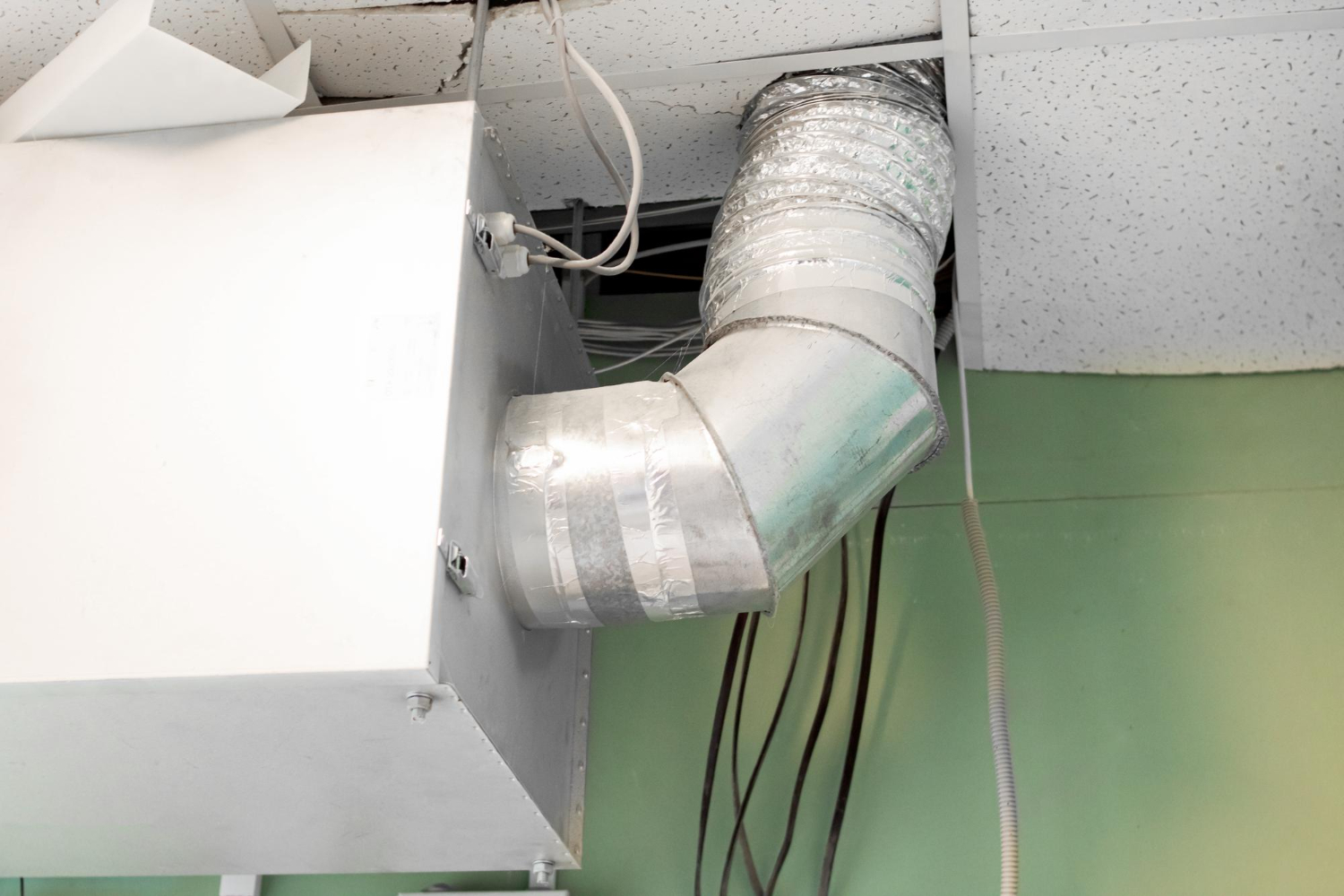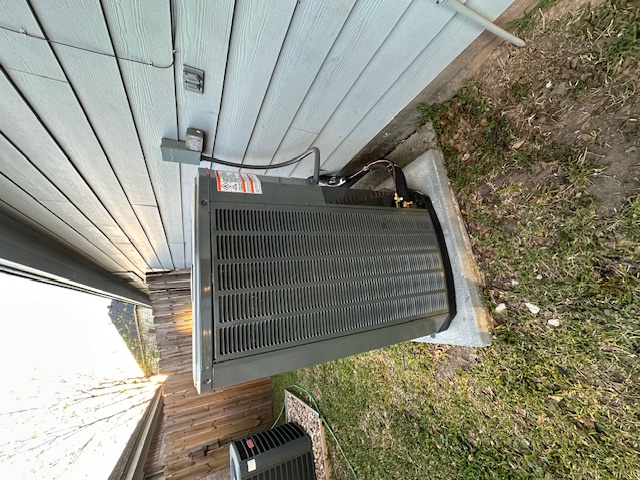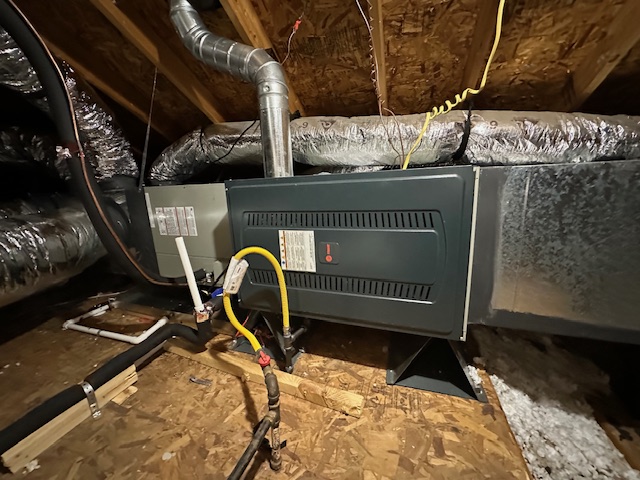You should call for professional humidifier repair service when you notice reduced mist production, unusual sounds, water pooling around the unit, or mineral buildup that cleaning won't fix. These issues often point to problems with internal parts that need expert attention.
Your humidifier keeps your home comfortable during dry seasons, but like any appliance, it can develop problems over time. Strange noises, poor mist output, or water leaks are clear signs something isn't working right.
Health.com reports that humidifiers can relieve congestion and dry coughs, prevent dry skin, and may reduce virus transmission by maintaining humidity above 40%.
In this article, we'll walk you through the warning signs that mean it's time to get help, what repair services typically include, and how to find the right technician.
Below, we’ll walk through each important aspect:
- Common signs your humidifier needs repair
- What's included in professional humidifier repair service
- Cost factors and life expectancy of a humidifier
- Choosing a trusted humidifier repair technician near you
Keep up! Understanding when to repair versus replace your humidifier can save you money and keep your home's air quality where it should be.
Common signs your humidifier needs repair
Your humidifier should work quietly and keep your indoor air quality at the right level. When it starts making strange sounds, stops producing mist, or leaks water, these are clear signs that something is wrong.
No mist or weak airflow from the unit
When your humidifier stops making mist, it can't improve your indoor air quality. This problem usually starts with small changes that get worse over time.
Check these common causes:
- Empty water tank
- Clogged filter or vents
- Broken fan motor
- Faulty heating element
We often see weak airflow when dust blocks the air vents. Clean the vents with a soft brush or cloth. If that doesn't help, the fan motor might be failing.
No mist can mean the heating element is broken. This part heats the water to make steam. When it stops working, you'll have water but no vapor coming out.
Unusual noises or constant cycling
A good humidifier runs quietly. Strange sounds mean parts are wearing out or something is blocking the system.
Listen for these problem sounds:
- Grinding or scraping noises
- Loud clicking or popping
- Constant running without stopping
Grinding sounds usually mean the fan motor is failing. The motor bearings wear out and create friction. This noise gets louder over time.
Constant cycling happens when the humidifier turns on and off too much. It might run for a few minutes, stop, then start again right away. This wastes energy and doesn't maintain steady humidity levels.
Leaks, clogs, or mineral buildup
Water leaks damage your floors and furniture. Clogs and mineral buildup make your humidifier work harder and break down faster.
Common leak sources:
- Cracked water tank
- Loose connections
- Worn seals or gaskets
- Overflowing base
Mineral buildup comes from hard water. White or brown deposits form on the heating element and inside the tank. These deposits block water flow and make the unit work harder.
Clogs happen when mineral buildup blocks the water lines or filter. Water can't flow properly, so the humidifier produces less mist. The unit might also make gurgling sounds.
We recommend cleaning your humidifier every week to prevent these problems. Use white vinegar to dissolve mineral deposits.
When the humidity levels stay unchanged
Your humidifier should raise the humidity levels in your home. When it runs but the air stays dry, something is wrong with the system.
Check these issues:
- Broken humidity sensor
- Undersized unit for your space
- Air leaks in your home
- Faulty control board
A broken humidity sensor can't tell when to turn the unit on or off. The humidifier might run constantly or not turn on at all. This wastes energy and doesn't fix your dry air problem.
Sometimes the unit is too small for your space. It runs all the time but can't add enough moisture to the air. Check your humidifier's capacity rating against your room size.
The control board manages all the humidifier functions. When it fails, the unit can't respond to humidity changes properly.
What's included in professional humidifier repair service
Professional humidifier repair service covers complete system diagnosis, component replacement, and preventive maintenance. We address electrical problems, swap out worn filters and fans, and help maintain better indoor air quality through proper system care.
Diagnosing mechanical and electrical issues
We start every repair by checking your humidifier's mechanical and electrical systems. Our technicians test the motor, wiring, and sensors to find what's causing problems.
Common mechanical issues include:
- Clogged water lines that block proper flow
- Worn motor bearings that create noise
- Damaged housing that causes leaks
For electrical problems, we examine the power supply and control circuits. Faulty wiring can prevent your humidifier from turning on or cause it to run constantly.
We use specialized tools to measure voltage and current flow. This helps us pinpoint exactly where the electrical system is failing.
Temperature and humidity sensors often malfunction over time. When these fail, your humidifier can't maintain proper moisture levels in your home.
Replacing filters, fans, and control boards
We replace key components that wear out during normal use. Filters need changing every 1-3 months depending on water quality and usage.
Clogged filters reduce water flow and can damage the motor. We install the correct filter type for your specific humidifier model.
Fans move air through the system to distribute moisture. When fan blades crack or motors burn out, we replace the entire fan assembly.
Control boards manage your humidifier's operations. These electronic components can fail due to power surges or moisture damage.
We stock common replacement parts for most humidifier brands. This means we can complete most repairs in one visit without ordering special components.
The role of regular humidifier maintenance
Regular maintenance prevents costly repairs and extends your humidifier's life. We recommend professional service twice per year - before and after heating season.
During maintenance visits, we:
- Clean mineral buildup from water reservoirs
- Check belt tension and motor alignment
- Test automatic controls and safety switches
- Inspect drain lines for clogs
Proper maintenance keeps your system running efficiently. Clean components use less energy and produce better humidity control.
We also check your home's ductwork connections. Loose fittings can cause humidity to escape before reaching living areas.
When repairs lead to improved indoor air quality
Fixed humidifiers help maintain ideal humidity levels. According to the EPA, maintaining indoor humidity between 30% and 50% helps alleviate dry skin, nasal irritation, static electricity, and protects paint and wood from cracking.
Proper humidity levels prevent dry skin and respiratory irritation. They also protect wood furniture and floors from cracking.
When we repair your humidifier, we calibrate it to match your home's specific needs. Larger homes may need higher output settings than smaller spaces.
We test final humidity levels in multiple rooms. This ensures even moisture distribution throughout your living areas.
A properly functioning humidifier also reduces heating costs. Humid air feels warmer, so you can set your thermostat lower while staying comfortable.
Cost factors and life expectancy of a humidifier
Humidifier repair costs typically range from $75 to $300 for most issues, while whole-home systems last 8-12 years with proper maintenance. Installation quality directly impacts how long your system will run without major repairs.
Average pricing for local humidifier repair
Local humidifier repair costs depend on the type of problem and system size. Simple fixes like cleaning or replacing a filter cost $75 to $125.
More complex repairs range from $150 to $300. These include:
- Motor replacement: $180-$250
- Control panel repair: $120-$200
- Water valve issues: $100-$175
- Electrical problems: $150-$275
Emergency service calls add $50 to $100 to any repair bill. Weekend and holiday repairs cost even more.
Labor rates vary by location. Urban areas typically charge $80 to $120 per hour. Rural areas often charge $60 to $90 per hour.
Whole-home system repairs cost more than portable units. We see repair bills of $200 to $500 for central humidifiers due to their complexity.
When repair is worth it versus full replacement
Age is the biggest factor in repair versus replacement decisions. Systems under 5 years old are usually worth repairing.
If repair costs exceed 50% of replacement price, we recommend buying new. A $400 repair on a system that costs $600 to replace makes little sense.
Repair when:
- System is less than 6 years old
- Repair costs under $200
- Only one component failed
- Unit has good maintenance history
Replace when:
- System is over 10 years old
- Multiple parts need fixing
- Repair costs over $350
- Frequent breakdowns occur
Energy efficiency matters too. Newer models use 20-30% less electricity than units from 2015.
Lifespan expectations for whole-home systems
Whole-home humidifiers typically last 8 to 12 years with regular maintenance. Steam units last longest at 10-15 years.
Average lifespans by type:
- Steam humidifiers: 10-15 years
- Evaporative pad systems: 8-12 years
- Drum systems: 6-10 years
- Bypass humidifiers: 8-12 years
Water quality affects life expectancy significantly. Hard water reduces lifespan by 2-3 years due to mineral buildup.
Regular maintenance extends system life. Annual cleaning and filter changes can add 2-4 years to operation.
Climate plays a role too. Systems in dry climates work harder and may need replacement sooner.
How humidifier installation affects long-term performance
Proper installation is crucial for long-term performance. Poor installation reduces system life by 30-40%.
Critical installation factors:
- Correct sizing for home square footage
- Proper electrical connections
- Adequate water supply pressure
- Appropriate ductwork placement
Professional installation costs $200 to $500 but prevents costly problems later. DIY installation often leads to water damage or electrical issues.
Drainage setup affects performance greatly. Poor drainage causes water damage and mold growth within months.
Regular maintenance becomes easier with proper installation. Well-installed systems need fewer repairs and last longer.
Choosing a trusted humidifier repair technician near you
Finding the right repair technician means understanding which professionals handle humidifier work and asking the right questions before booking service. Many homeowners benefit from bundling repairs with regular HVAC maintenance for better value and system performance.
Do HVAC or plumbing professionals handle repairs?
Most humidifier repairs fall under HVAC services rather than plumbing work. HVAC technicians handle whole-house humidifiers that connect to your heating and cooling system.
These professionals understand how humidifiers work with your furnace and ductwork. They can fix electrical connections, replace filters, and adjust water flow settings.
Plumbing professionals may help with water supply lines or drainage issues. However, they typically don't handle the mechanical parts of your humidifier system.
Some companies offer both HVAC and plumbing services. This makes repairs easier when your humidifier has both mechanical and water-related problems.
Portable humidifiers usually need appliance repair specialists instead of HVAC technicians. Check your warranty before calling for service on these units.
Questions to ask before booking a local service
Start by asking about licensing and insurance coverage. Licensed technicians have proper training and follow local building codes.
Ask about their experience with your specific humidifier brand and model. Some units need special parts or tools that not all techs carry.
Find out about their diagnostic fees and whether they apply toward repair costs. Many companies charge between $75-150 for service calls.
Request a written estimate before any work begins. This should include labor costs, parts pricing, and total repair time.
Ask about warranty coverage on their repair work. Quality technicians typically guarantee their work for 30-90 days.
Check if they offer emergency service or weekend appointments. Dry air can cause health problems, so quick service matters.
Why Horizon Air Solutions is trusted for air quality systems
Horizon Air Solutions specializes in complete air quality systems including humidifiers, dehumidifiers, and air purifiers. Their technicians receive ongoing training on the latest equipment.
We recommend them because they offer transparent pricing and detailed service reports. Their team explains what caused the problem and how to prevent future issues.
They stock common parts for most major humidifier brands. This means faster repairs without waiting for special orders.
Their air quality systems approach looks at your whole home environment. They can spot problems that affect both your humidifier and overall indoor air quality.
Customer reviews consistently mention their professional service and fair pricing. They also provide written warranties on all repair work.
How to bundle repair with broader HVAC maintenance
Combining humidifier repair with HVAC maintenance saves money and improves system performance. Many companies offer package deals for multiple services.
Schedule humidifier service during your annual furnace tune-up. Technicians can clean both systems and check how they work together.
HVAC maintenance contracts often include humidifier filter changes and basic cleaning. This prevents many common repair problems.
Ask about seasonal service packages that cover heating, cooling, and humidity control. These plans typically cost less than separate service calls.
Regular maintenance catches small problems before they become expensive repairs. Your technician can spot worn parts and replace them during routine visits.
Many companies offer priority scheduling for maintenance customers. This means faster service when you need emergency repairs.
Conclusion
Taking care of your humidifier problems quickly can save you money and keep your home comfortable. We know when to fix small issues ourselves and when to call experts.
We should clean our humidifiers regularly to prevent many common problems. Simple maintenance like changing filters and emptying tanks helps units last longer.
Professional repair services have the right tools and knowledge for complex issues. They can We don't need to struggle with broken humidifiers. Getting help from trained technicians ensures our units work properly and safely.
Regular maintenance and knowing when to call for help keeps our homes at the right humidity level. This protects our health and our belongings from dry air damage.
Schedule your humidifier repair service today to restore comfort, prevent damage, and maintain healthy indoor air quality.











